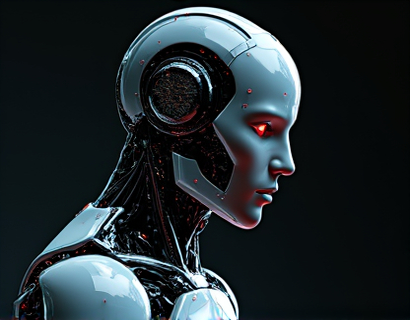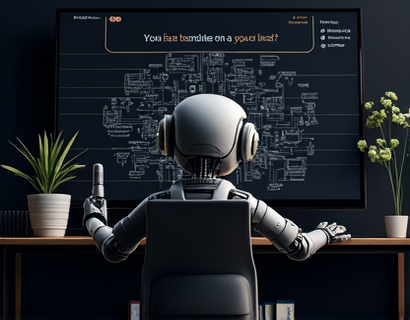Discover the Ultimate Collection of Smart Appliances to Transform Your Modern Home
In the fast-evolving landscape of home technology, the integration of smart appliances has become a pivotal step towards a more efficient, convenient, and sustainable living environment. This article delves into the ultimate collection of smart appliances designed to seamlessly blend into modern living, offering a glimpse into the future of home automation and smart living.
The journey towards a smarter home begins with understanding the core benefits of smart appliances. These devices, equipped with advanced sensors, Wi-Fi connectivity, and intuitive interfaces, transform mundane tasks into effortless experiences. From optimizing energy consumption to enhancing security and comfort, smart appliances redefine the essence of modern living.
Enhancing Convenience and Efficiency
One of the primary advantages of smart appliances is the unparalleled convenience they offer. Imagine starting your coffee in the morning simply by voice command or having your washing machine notify you when the cycle is complete. This level of convenience extends to various aspects of home management.
Smart thermostats, for instance, learn your temperature preferences and adjust accordingly, ensuring optimal comfort while reducing energy waste. Smart lighting systems can be controlled remotely, set on schedules, or even adjust based on natural light levels, creating a seamless and energy-efficient environment.
Energy Efficiency and Cost Savings
Energy efficiency is a critical factor in modern home management, and smart appliances play a significant role in achieving this goal. Smart refrigerators, for example, monitor internal and external temperatures to optimize cooling, reducing energy consumption without compromising on food preservation.
Smart washing machines and dishwashers can run during off-peak hours when electricity rates are lower, significantly cutting down on utility bills. Additionally, smart power strips can detect when devices are not in use and automatically cut power, eliminating standby energy waste.
Health and Safety Enhancements
The integration of smart technology in appliances also contributes to a healthier and safer home environment. Smart air purifiers monitor air quality and automatically adjust settings to maintain optimal conditions, improving indoor air quality and reducing allergens.
Smart ovens with built-in cameras allow you to monitor cooking progress remotely, ensuring food is cooked to perfection without the need to constantly check. Some smart ovens even offer automated cooking programs, making meal preparation easier and safer.
Seamless Integration and Control
A key feature of smart appliances is their ability to integrate seamlessly with other smart devices and home systems. Through centralized hubs or smart home apps, users can control multiple devices from a single interface, creating a cohesive and user-friendly experience.
Voice assistants like Amazon Alexa and Google Assistant further enhance this integration, allowing hands-free control of smart appliances. Simple voice commands can turn on lights, adjust the thermostat, or start a laundry cycle, making daily tasks more accessible and convenient.
Customization and Personalization
Smart appliances offer a high degree of customization, allowing users to tailor their home environment to personal preferences. Smart speakers can play music, provide news updates, or even tell jokes, creating a more enjoyable and personalized living space.
Smart kitchen appliances, such as coffee makers and blenders, can be programmed to start at specific times, ensuring your favorite brew is ready when you wake up. Some smart ovens even allow you to preheat or adjust cooking settings from your smartphone, making meal preparation more flexible and convenient.
Environmental Impact and Sustainability
The shift towards smart appliances aligns with a broader movement towards sustainability and environmental responsibility. By optimizing energy usage and reducing waste, smart appliances contribute to a more eco-friendly home.
Smart water heaters, for example, heat water only when needed, preventing the energy loss associated with maintaining a constant temperature. Smart gardening systems monitor soil moisture and weather conditions, ensuring plants receive the right amount of water, reducing water waste and promoting healthier plants.
Market Trends and Innovations
The smart appliance market is rapidly evolving, with continuous innovations pushing the boundaries of what's possible. One notable trend is the integration of artificial intelligence (AI) and machine learning, enabling appliances to learn from user behavior and adapt to individual needs.
AI-powered smart home systems can predict and automate tasks based on patterns and preferences, creating a truly intelligent and responsive living environment. For instance, a smart home system might automatically adjust lighting and temperature based on the time of day and your usual routines.
Choosing the Right Smart Appliances
With the vast array of smart appliances available, selecting the right ones for your home can be overwhelming. Here are some key factors to consider:
- Compatibility: Ensure the appliances are compatible with your existing smart home system or hub.
- Ease of Use: Opt for appliances with intuitive interfaces and user-friendly apps.
- Energy Efficiency: Look for appliances with high energy efficiency ratings to reduce long-term costs.
- Security: Prioritize appliances with robust security features to protect your home network.
- Customer Support: Choose brands with reliable customer support for assistance and maintenance.
By considering these factors, you can create a smart home that not only enhances your daily life but also provides lasting value and peace of mind.
Future Prospects and Emerging Technologies
The future of smart appliances holds exciting possibilities, with emerging technologies poised to further transform home living. One such technology is the Internet of Things (IoT), which will enable even more devices to connect and communicate, creating a more integrated and intelligent home environment.
Advancements in 5G technology will provide faster and more reliable connectivity, enhancing the performance of smart appliances and enabling real-time data processing. This will lead to more responsive and efficient home systems, from smart security cameras to advanced home automation solutions.
Another area of interest is the integration of renewable energy sources, such as solar panels, with smart home systems. This synergy will allow homes to not only consume less energy but also generate their own power, further reducing environmental impact and utility costs.
Conclusion
The ultimate collection of smart appliances represents a significant step forward in creating a modern, efficient, and sustainable home. By embracing these innovations, homeowners can enjoy a higher quality of life, characterized by convenience, energy savings, and enhanced well-being.
As technology continues to advance, the potential for smart appliances to transform our living spaces is limitless. Whether you're a tech enthusiast or simply looking to streamline your daily routine, the right smart appliances can make a substantial difference in your home experience.










































